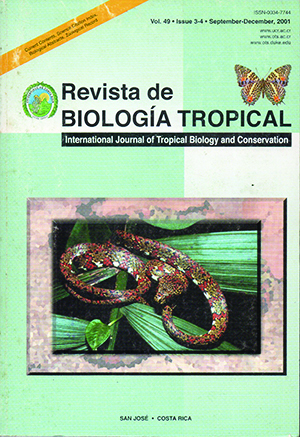Abstract
Benthic annelid communities were studied during a one-year period (August/95 to July/96) in two sectors of the beaches Engenho d’Água and São Francisco, São Sebastião Channel (São Paulo, Brazil), where the substrate is composed by a mixture of sand and rock fragments. Abiotic parameters such as salinity of interstitial water and sediment properties were used to characterize the environment. The polychaetes were well represented in the two sectors and their distribution was related with sediment type. The density of individuals and the number of taxa was higher at São Francisco, while the diversity and the evenness were higher at Engenho d’Água. This difference can be a consequence of organic enrichment caused by domestic input, and of the lower and more variable salinity at São Francisco. Due to these factors, the high density of opportunistic species, like Capitella capitata ssp., Scolelepis squamata, Laeonereis acuta and several oligochaetes, represented 75.5% of total abundance at this sector.Comments

This work is licensed under a Creative Commons Attribution 4.0 International License.
Copyright (c) 2001 Revista de Biología Tropical
Downloads
Download data is not yet available.


